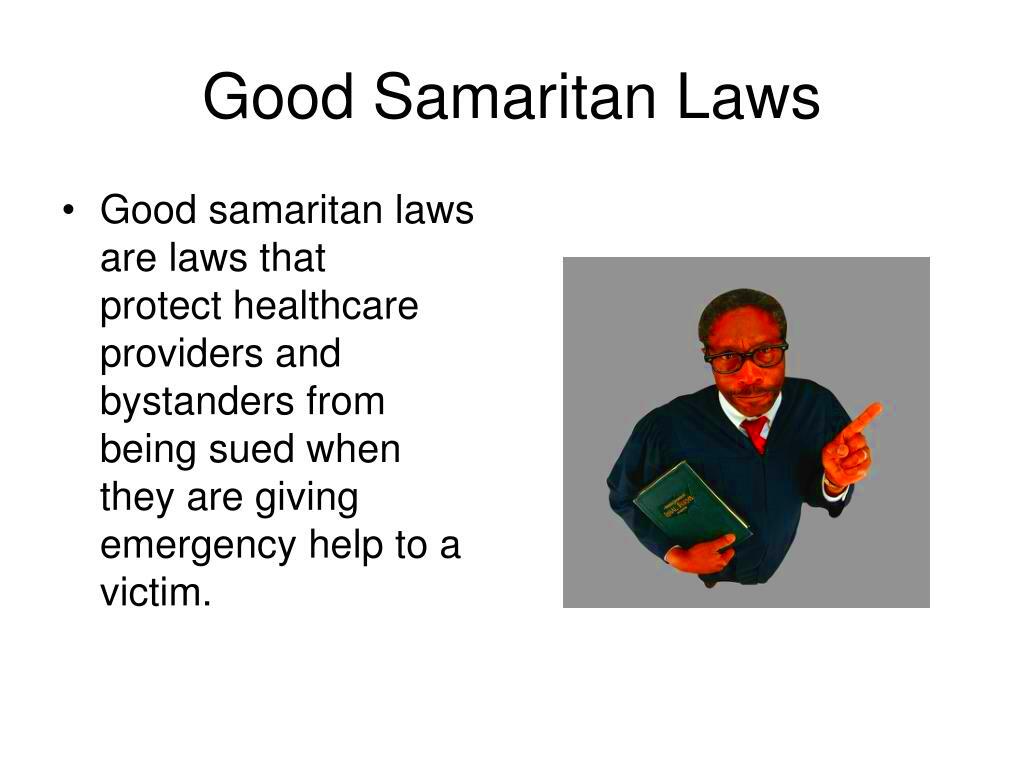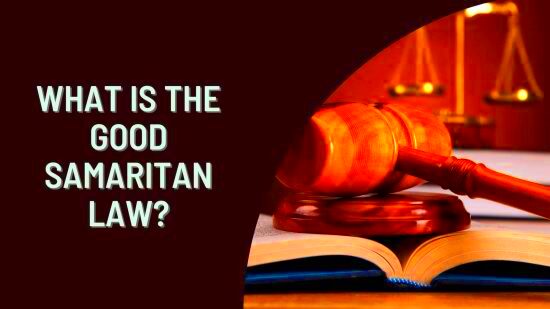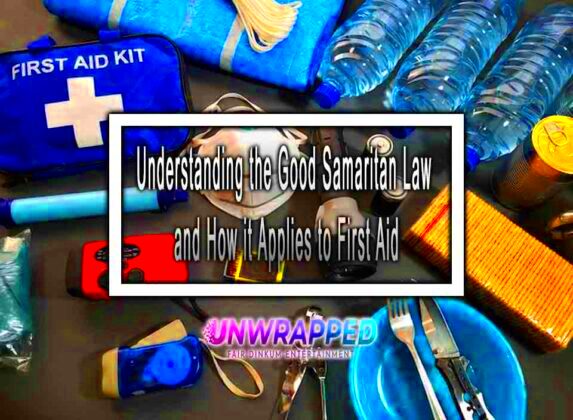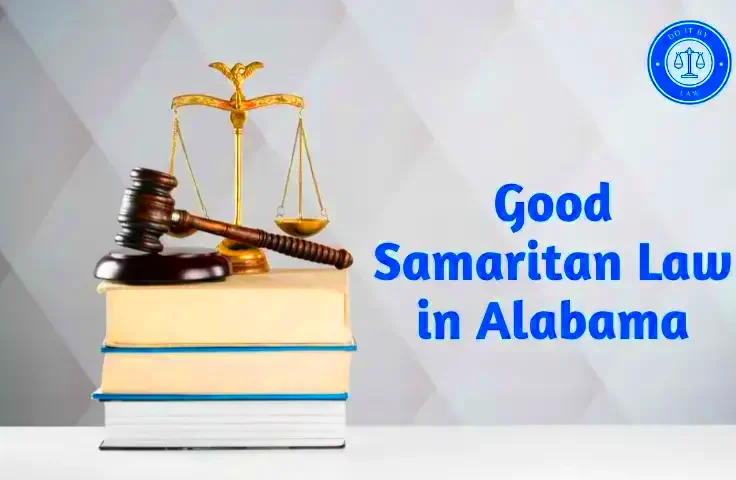Understanding the Good Samaritan Law in Alabama
The Good Samaritan Law in Alabama encourages individuals to assist others during emergencies without worrying about the implications of their actions on legal matter. This law provides protection to those who choose to offer help in dangerous circumstances. The whole point is that if you want to assist someone and accidentally hurt them, you will not be prosecuted for it. Anyone intending to extend help during emergencies should know this law well.
Purpose of the Good Samaritan Law

The main goal of the Good Samaritan Law is to foster benevolence and motivate people who are not involved in the situation to do something during emergencies. There are other important reasons as to why this law matters:
- Encouragement to Help: The law aims to remove the hesitation that people might feel when deciding whether to help someone in distress.
- Protection from Liability: It safeguards those who assist from being sued if their help causes unintended harm.
- Public Safety: By encouraging more people to act, the law can lead to quicker responses in emergencies, potentially saving lives.
- Promotion of Community Support: It fosters a sense of community where individuals feel responsible for each other’s welfare.
Who is Protected Under This Law

The Good Samaritan Statute safeguards people rendering assistance in times of need. The following are the detailed classes of persons or groups that this law shields:
- Bystanders: Ordinary citizens who witness an emergency and choose to assist.
- Medical Professionals: Doctors, nurses, and other healthcare providers offering aid outside of their regular duties.
- Good Samaritans: Anyone acting in good faith to help someone in peril without expectation of reward.
!!This means that if someone wants to provide assistance or help another person then he/she has to do so without any gross negligence and on a voluntary basis. Knowing what kind of people get covered under this law makes those who are willing to assist others more comfortable and confident in their actions.
Actions Covered by the Good Samaritan Law

In emergency situations, Good Samaritan laws encompass various actions. This is meant to safeguard anyone who assists those in peril according to the law. Listed below are some common activities that are usually included:
- Providing First Aid: If you are trained in first aid or CPR, your efforts to save a life or stabilize a person in distress are protected.
- Calling Emergency Services: Simply dialing 911 for someone in need is an act of assistance that falls under this law.
- Rescuing a Person: Whether it’s pulling someone from a dangerous situation, like a fire or a car accident, your actions are protected.
- Administering Medication: If you administer medication, like an EpiPen for an allergic reaction, you are protected as long as you do so in good faith.
Nevertheless, it is important to note that the aforementioned actions should be done in the absence of serious negligence. In the event that an individual attempts to assist but behaves carelessly, such a person may not receive any protection from this act.
Limitations of the Good Samaritan Law
In spite of the fact that this law safeguards us more than anything else, one should always be aware of its restrictions. Make a note of these important things:
- Gross Negligence: If a person acts with extreme carelessness or disregard for safety, they may not be protected.
- Incompetence: Individuals without any training who try to administer medical care may not receive legal protection if their actions cause harm.
- Non-Emergency Situations: The law is intended for emergencies. If you intervene in a situation that doesn’t require immediate action, you may not be covered.
- Acts of Malice: If someone intentionally harms another person under the guise of helping, they lose protection.
Being aware of their constraints can assist people in making knowledgeable choices in times of crises.
Legal Protections for Good Samaritans
The Good Samaritan Law presents vital judicial shields for individuals opting to assist in crises. Some of the offered protection includes:
- Immunity from Lawsuits: Individuals who provide emergency assistance are generally protected from civil liability as long as they act in good faith.
- Protection from Criminal Charges: If you provide aid during an emergency, you usually won’t face criminal charges for your actions, unless there was malicious intent.
- Encouragement to Help: By knowing you are protected, more people are likely to step in and help others in need, creating a safer community.
It is also essential to record the state of affairs when feasible. If you assist an individual, endeavor to accumulate details of the event. Such information might be useful in case any legal issues come up later. Finally, the Good Samaritan Law promotes the spirit of assistance and thus contributes to making our neighborhoods safer than before.
How to Respond as a Good Samaritan
All of a sudden, it can be an emergency situation for some. And how you respond to is what counts and makes the difference. There are simple steps you can follow as a Good Samaritan in order to help effectively and safely:
- Assess the Situation: Before you rush in, take a moment to understand what’s happening. Is the person in immediate danger? Are there any potential risks to your safety?
- Call for Help: If the situation requires professional assistance, don’t hesitate to call 911. It’s crucial to get trained responders on the way.
- Provide Assistance: If it’s safe, offer help. This could mean performing first aid, comforting the person, or moving them to a safer location.
- Stay Calm: Your composure can have a calming effect on the person in distress. Speak gently and reassuringly to help them feel secure.
- Document the Incident: If possible, take notes or gather details about the situation. This can be useful if any legal questions arise later.
- Follow Up: If you know the person’s name or contact details, consider following up to see how they are doing. It shows you care and can provide emotional support.
Bear in mind that your protection matters too. Help only when it’s secure to do so.
Frequently Asked Questions
Here are the some familiar inquiries that individuals have concerning the Good Samaritan legislation:
- What if I provide help and something goes wrong? If you act in good faith, you are generally protected from liability, as long as you don’t act with gross negligence.
- Does this law apply to all emergencies? Yes, the law covers a range of emergency situations, including medical crises, accidents, and natural disasters.
- Do I need special training to be a Good Samaritan? While training in first aid or CPR is helpful, anyone can act as a Good Samaritan. Just be sure to act responsibly.
- Can I be sued if I don’t help? No, you cannot be legally compelled to assist someone. However, stepping in to help can save lives.
Conclusion
To understand the Good Samaritan Law is to realize that it is important for all who want to give help to anyone in distress. This legislation lets individuals act during emergencies with no fear of legal issues. Keep in mind that sometimes your intervention may save someone’s life which is very essential. Being informed about what to do and available protections allow you to be an assured and efficient Good Samaritan. Always put safety first, and when those near you need aid most, be ready to help them. In this way we can build a more caring and compassionate society.


